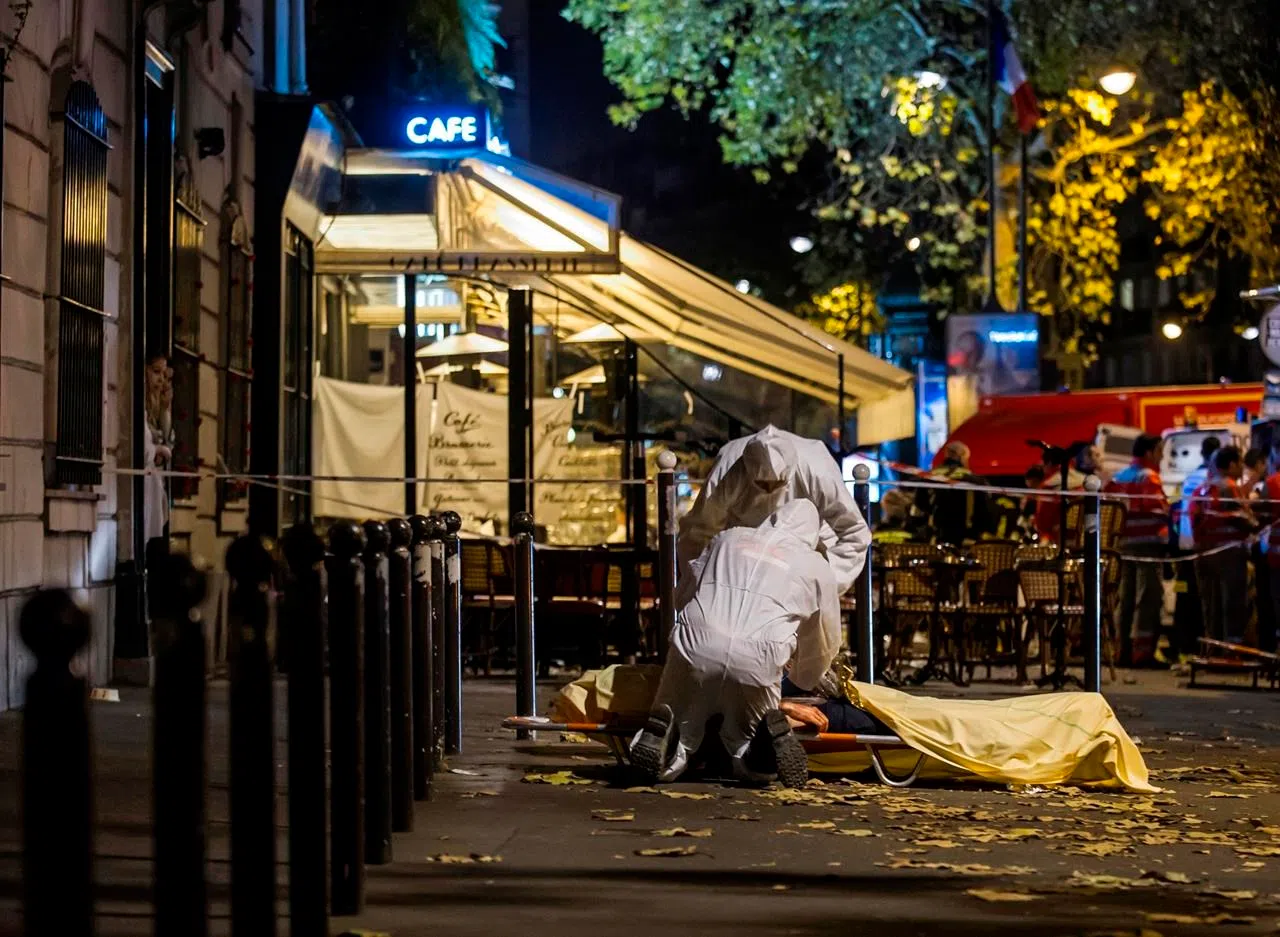
How and why Paris was attacked a year ago, and what changed
PARIS — A year ago the Islamic State group brought its extremist war to Paris, seeding terror with attacks on a rock concert, the national stadium and bustling sidewalk cafes. Here is a look at the deadly events on the night of Nov. 13, 2015, and their lasting consequences for the world.
WHAT HAPPENED: THE ATTACKERS, THE VICTIMS, THE CHAOS
It began with suicide bombings outside the Stade de France around 9:20 p.m., during a match between the French and German national soccer teams, with President Francois Hollande in attendance. Three bombers killed one passerby. If the attackers had made it past stadium security, the toll would have been much worse.
Within minutes, the shooting began in eastern Paris, as the cafes of the 10th and 11th arrondissements were booming with Friday night revelers. Six cafes were targeted by a three-man commando unit— Le Carillon, Le Petit Cambodge, Cafe Bonne Biere, Casa Nostra, La Belle Equipe and the Comptoir Voltaire. More than 400 shots were fired over about 10 minutes, leaving 39 people dead.


